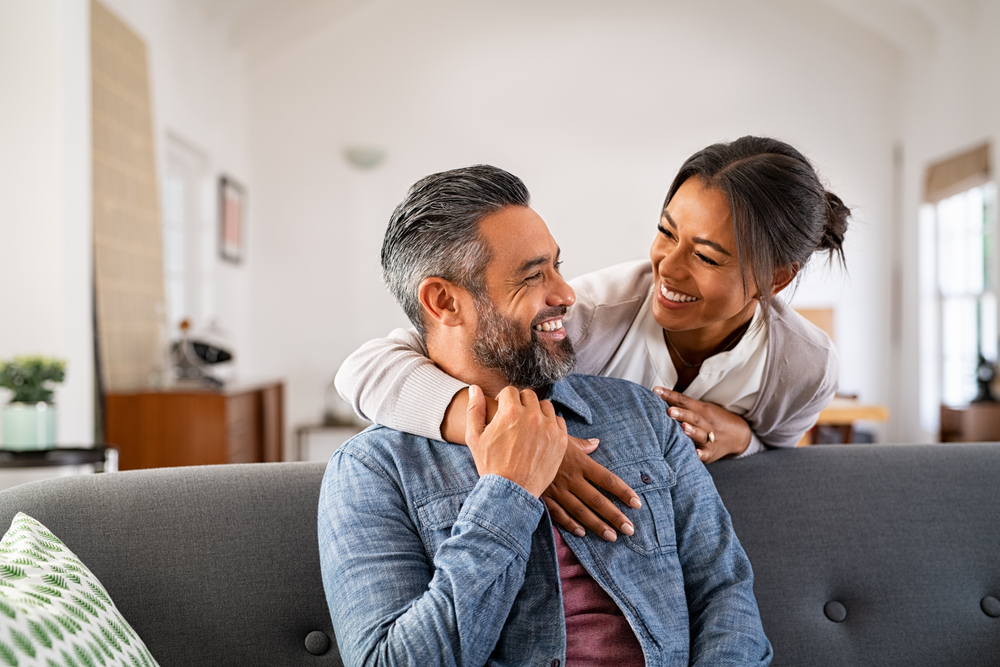Not every relationship leads to happiness. Some drain you. Others confuse you. But the truly fulfilling ones? Those are built on consistent behavior that makes you feel safe, loved, and seen. The happiest relationships are not based on how often someone says “I love you” or how many gifts they give. Instead, they are built on the daily habits of emotional presence, respect, and understanding. If you are lucky enough to find someone who consistently shows these eight behaviors, you are in one of the healthiest relationships you can experience.
1. They Listen Without Trying to Fix You

In a happy relationship, your partner listens to understand, not to solve. When you talk about something that upsets you, they do not rush to offer advice or tell you what to do. Instead, they hold space for you. This kind of presence shows emotional maturity and empathy. Research from the Gottman Institute highlights that couples who feel heard and validated report stronger relationship satisfaction. The happiest partners do not minimize your struggles or try to compete with your pain. They listen because they care, not because they want credit for helping.
2. They Are Honest, Even When It Is Uncomfortable

Truth builds trust. A partner who tells you the truth, even when it is hard, is someone you can rely on. Whether they are telling you about a mistake they made or expressing a boundary they need to set, their honesty means they respect you enough to be real. This kind of openness keeps resentment from building up. A 2020 study in the Journal of Social and Personal Relationships found that honesty leads to greater closeness and emotional intimacy in long-term partnerships. Even when the truth stings, it lays a foundation for trust that deepens over time.
3. They Apologize and Make Real Efforts to Improve

In the happiest relationships, mistakes are not ignored or dismissed. They are addressed with humility. When your partner hurts you, they do not shift blame or get defensive. They take ownership. More importantly, they show that they are learning from what happened. Apologizing without change is manipulation, not love. A healthy partner reflects, adjusts, and grows. This signals emotional responsibility. It also means that the relationship has room to evolve, rather than getting stuck in painful cycles.
4. They Celebrate Your Wins Without Competing

You will feel the happiest in love when your partner is truly happy for you. When you succeed, they do not get jealous. They cheer for you. They celebrate your progress, your growth, and your joy. Studies in positive psychology suggest that partners who show active constructive responses to each other’s good news are more likely to have fulfilling relationships. That means they respond with genuine enthusiasm and interest, not fake smiles or silent comparisons. This kind of support strengthens emotional bonds and builds mutual confidence.
Read More: 7 Ways to Know Your Relationship Isn’t a Good Fit
5. They Make You Feel Safe Emotionally and Physically

The happiest relationship is a secure one. You do not have to walk on eggshells or guess how your partner feels about you. They are consistent in how they show love. They do not use threats, silent treatment, or manipulation to get their way. They never make you feel afraid to speak your mind or express a need. In fact, they make space for your emotions. According to psychologist Sue Johnson, founder of Emotionally Focused Therapy, emotional safety is one of the strongest predictors of lasting love. A partner who offers this type of environment helps you relax into the relationship, knowing you will not be punished for being human.
6. They Respect Your Boundaries and Identity

In joyful partnerships, individuality is honored. A partner who truly values you does not try to control you or change who you are. They support your autonomy. They want you to keep your hobbies, your friendships, and your opinions. They do not pressure you to compromise on your values. This respect creates freedom instead of restriction. A 2018 study in Personal Relationships revealed that autonomy-supportive behavior leads to higher relationship satisfaction and lower conflict. The happiest relationships give you space to be yourself while staying deeply connected.
7. They Are Emotionally Available and Open

An emotionally available partner does not shut down when things get hard. They share what they feel. They let you in. Emotional availability includes vulnerability, presence, and a willingness to connect even in difficult moments. You are not left guessing what they feel or chasing their affection. They meet you halfway. This helps both of you feel grounded and emotionally secure. Psychologists emphasize that emotionally avoidant partners often create unstable dynamics, while emotionally available ones foster connection and reduce anxiety in relationships.
8. They Prioritize the Relationship Consistently

The happiest relationships involve active commitment. Your partner shows through their actions that you are a priority, not an afterthought. This means making time for each other, resolving conflict instead of avoiding it, and investing energy even during busy seasons. Commitment is not just about staying together. It is about showing up for each other over and over again. When someone values the relationship, they do not leave you in limbo. They communicate plans, stay involved, and make you feel included. This daily effort keeps love from fading and strengthens the bond over time.
Final Thoughts

No relationship is perfect. Every couple faces disagreements, misunderstandings, and off days. But the happiest relationships are not about perfection. They are about patterns. When someone consistently shows kindness, honesty, emotional safety, and real presence, the relationship becomes a space of peace rather than stress. If your partner embodies these eight behaviors, you are in the kind of love that feels like home. That love is not flashy. It is not dramatic. But it is deeply fulfilling, and that makes all the difference.
Read More: 7 Hard Truths That Helped Me Choose Peace Over Toxic Love
Disclaimer: This article was created with AI assistance and edited by a human for accuracy and clarity.

